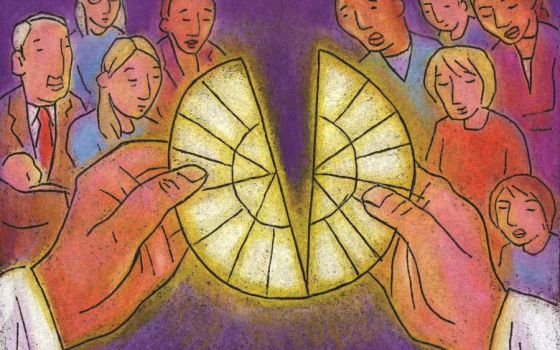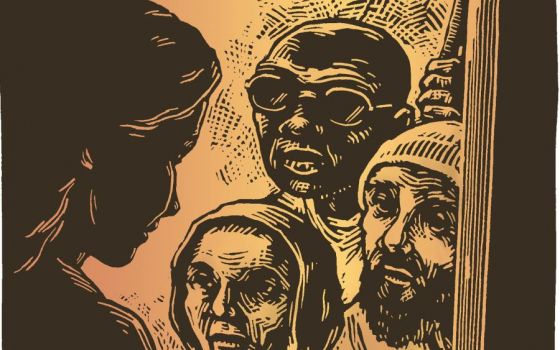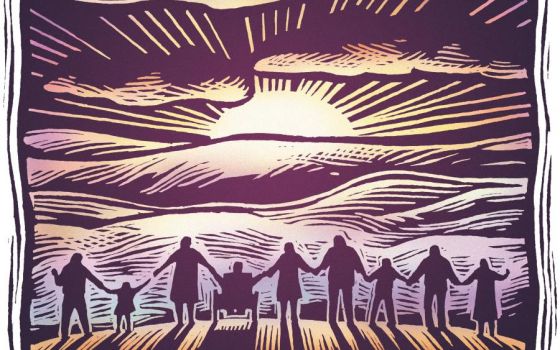
(Julie Lonneman)
Without doubt, the most important celebration this month is Pentecost. It honors an occasion the early church couldn't have lived without. Yet, at the same time, many of us modern Christians get along very well without even thinking about the event. The Holy Spirit is typically a non-entity in our lives. Over the centuries, we have become so accustomed to falling back on the church structures we have created that we rarely reflect on how the risen Jesus originally set up his community — with the Holy Spirit at its heart.
It is providential that June begins with the feast of the Ascension. This celebration always brings up a basic biblical problem: What happened to Jesus after his resurrection? Our first two Gospels — Mark and Matthew — simply leave us hanging. He is just "out there somewhere." Luke, in today's Acts of the Apostles reading, seems to have him change his zip code with a definitive ascension. Although it is clear from our Gospel pericope that Luke's Jesus, before his Acts event, ascends to heaven more than once. But then, he returns again to Earth to instruct his followers. Paul and his followers — including our Ephesians author — appear to avoid the historical question and just speak metaphorically about Christ's heavenly presence, seated at God's right hand, far above all other heavenly creatures. We can only be confident — echoing the psalmist's refrain — that Christ "reigns over the heavens." Though many of us hesitate to admit it, our belief in Jesus' resurrection doesn't come with a black-and-white assurance of where the risen Jesus has been hanging out.
Before quantum theology came into vogue, most Christians were convinced a leader who provides the institution with peace and quiet is God's special gift. The fact that "disturbing" things rarely happen — or are blocked from happening — has long been considered one of the signs we are the true church. Authenticity, in that view, demands that we never have a reason for alarm.
On the other hand, quantum theology, using the entire universe as a model for understanding God's actions in our individual and community life, continually points out that nothing significant happens in our universe that is not accompanied by disturbances. There is always some kind of wind, noise and fire. Though I presume Luke knew nothing about modern quantum theology, he would personally experience the arrival of the Spirit in his community's life and could legitimately tell his readers about the agitation that accompanied it. The church's equilibrium is always disturbed whenever and wherever the Spirit shows up.
Keeping this in mind, it is providential we celebrate the feast of the Trinity immediately after Pentecost — especially because of this specific Gospel passage from John. It is amazing it has been included in our Scriptures. John's Jesus states, "I have much more to tell you, but you cannot bear it now. But when he comes, the Spirit of truth, he will guide you to all truth." In other words, "You ain't seen nothing yet! The best is yet to come!"
We can know our Scriptures by heart, memorize every church dogma, and become an expert on each council decree, yet because of the Spirit's presence, there is always the possibility the risen Jesus will pull something out of the Spirit's hat in the next 10 minutes — something totally unforeseen. As Pope John XXIII once observed, it is not our job to guard a museum, but to cultivate a living garden — a garden in which we didn't plant the seeds.
Advertisement








